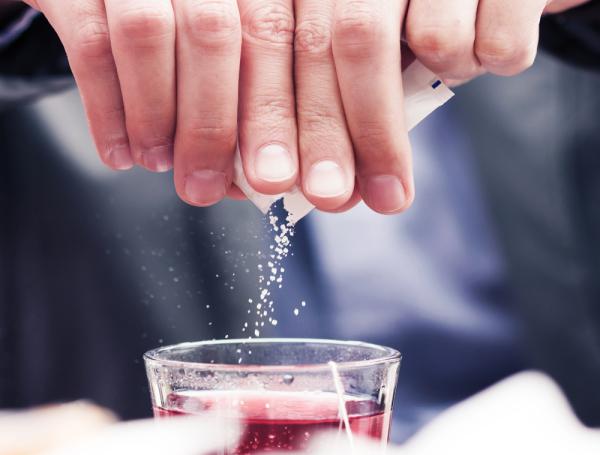It's long been acknowledged that over-consumption of sugary beverages (SSBs), be they fruit juices or colas, contribute to obesity and type 2 diabetes (T2DM). In an attempt to help folks reduce their calorie intake, some experts advise people to switch to artificially sweetened versions of such beverages. Some researchers purport to have found links between consumption of even artificially sweetened beverages (ASB) and obesity and T2DM. As we’ve noted before (see here) we find such theories more than a little hard to swallow. Yet a recent study seems to suggest just that.
Dr. Mengna Huang from the Brown University School of Public Health and colleagues investigated the association of the risk of T2DM with consumption of SSBs ASBs. They analyzed data from the National Women’s Health Initiative, which followed a large prospective cohort of postmenopausal women between 1993 and 1998. Approximately 65,000 women’s data were included. Of these, 4675 developed diabetes over the approximately eight years of follow-up.
Physical examinations were performed, and SSB consumption ascertained at the third annual visit from food frequency questionnaires. ASB consumption was determined at the same visit but from separate questionnaires.
Participants in the study reported whether they had been newly prescribed insulin or pills to control diabetes at each annual examination. If the answer to the query was “yes” they were classified as having developed T2DM.
The authors found that both SSB and ASB were associated with an increased risk of diabetes — by an increase of about 25 and 21 percent respectively. The comparisons in each case were between consuming 2 or more servings of the specified type of beverage per day with those who reported never drinking those beverages or drinking them less than three times per month. The differences in the associations in the case of the ASB consumers were only statistically significant in obese women, however.
As the investigators pointed out in their discussion, this finding increases the possibility that the association between ASB consumption and T2DM was not a result of the ASB causing diabetes. Rather, it was possible that the obese individuals, who would already have a higher risk of diabetes, would be more likely to drink ASB to try to help control their weight.
Although the authors cite other researchers who suggest various mechanisms that might be involved in actually establishing a causal relationship between ASB and diabetes, none has been shown to be factual yet.
The bottom line is that once again, a small increase in the risk of diabetes is associated with both ASB and SSB consumption — but it makes no more sense to think the connection is causal than it ever has.




